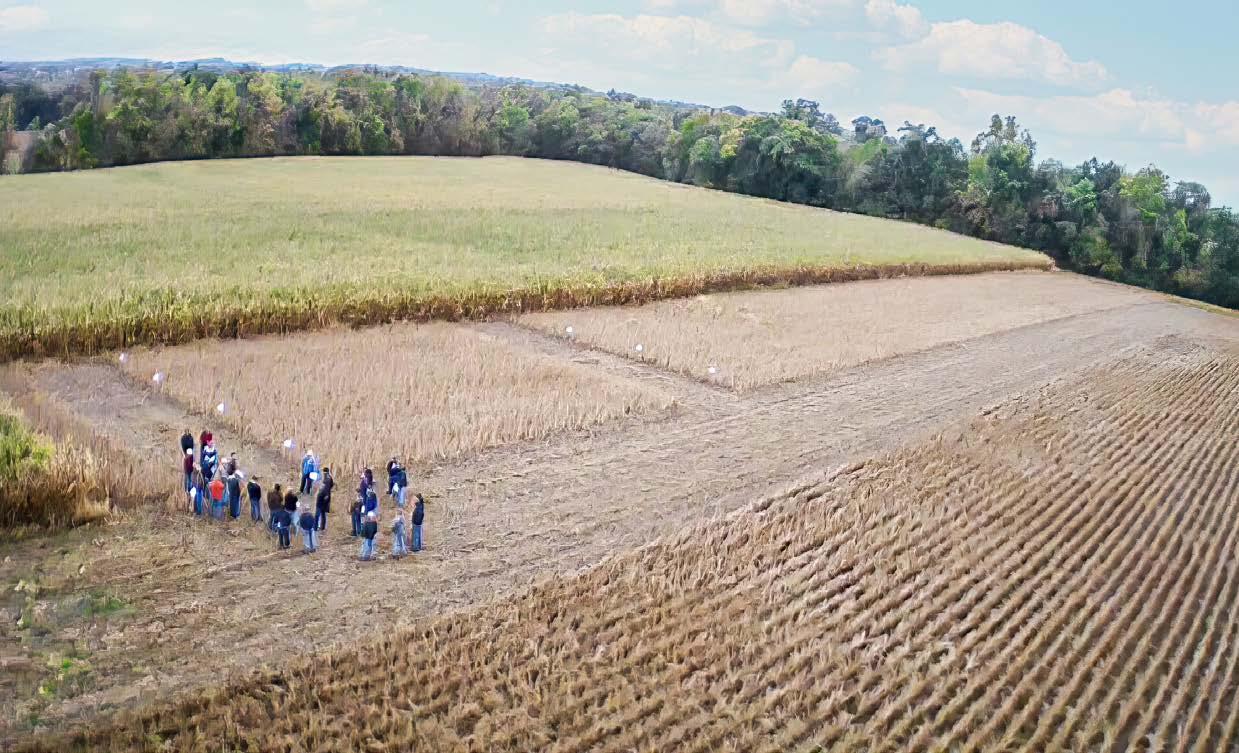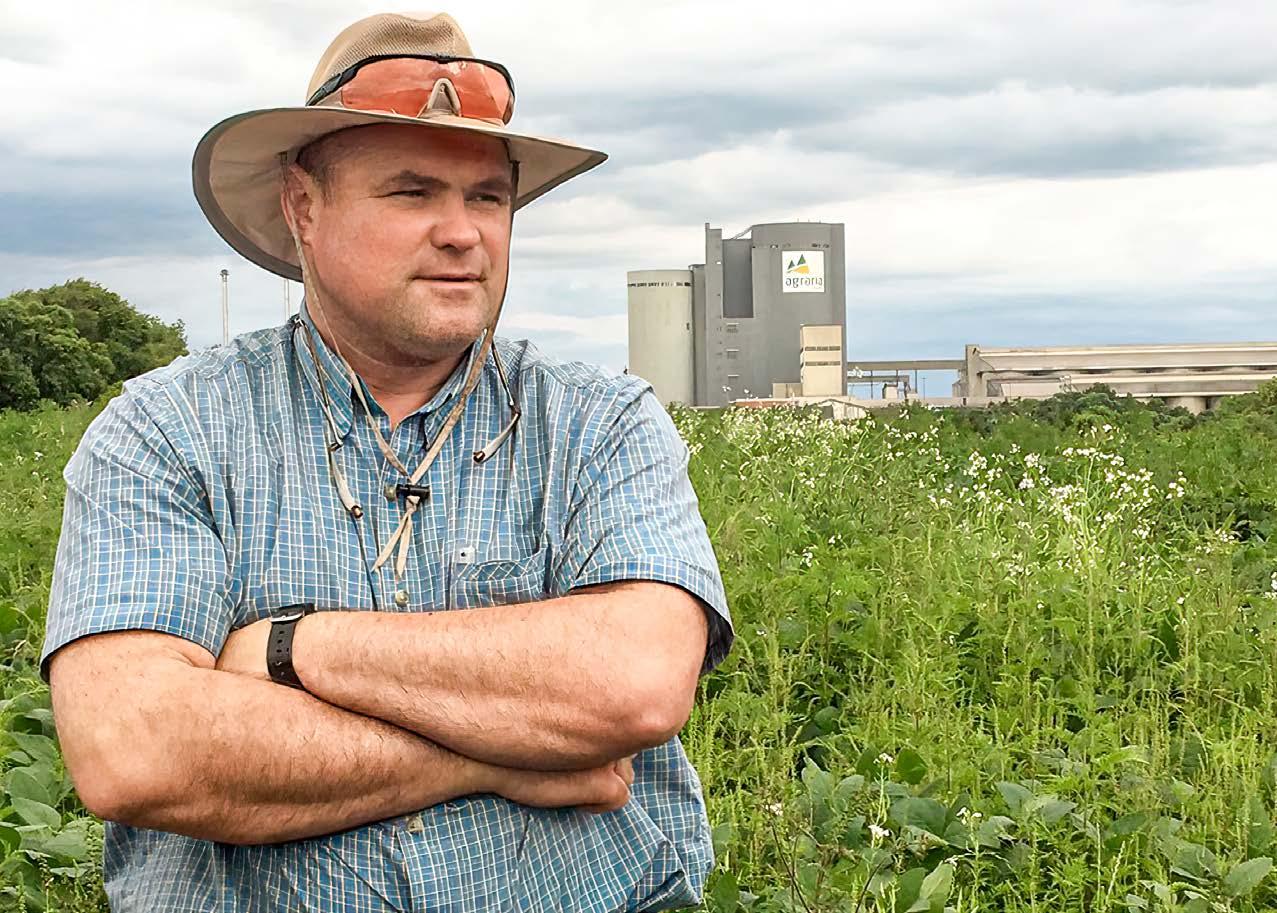
4 minute read
Convenience is Key When it Comes to Educating Farmers
Story by Michelle Kunjappu, photos by Del Voight and Michelle Kunjappu
‘Create a drive-in movie theater setup for educating farmers’ was probably not in Del Voight’s job description, but nonetheless, that’s exactly the venue that Del, a Penn State Senior Extension Educator, decided on when he wanted to get information out during COVID-19 restrictions. “I think that’s the challenge in education,” says Del, “knowing your audience and meeting their needs.”
Advertisement
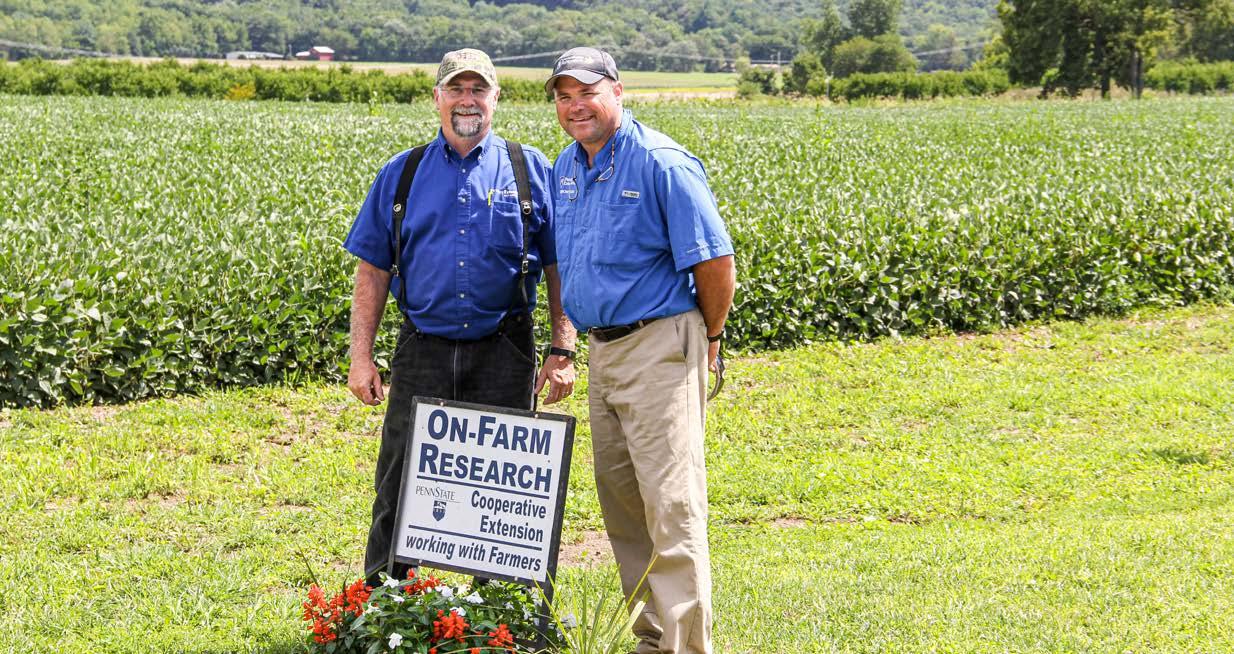
Del knew that area farmers needed to get seminar credits so they could apply pesticides if they needed it, “so we started drive-in theater style pesticide meetings,” he said. Farmers would park their trucks, find the specific radio station that was tuned to a transmitter hooked into Del’s computer, and hear the presentation that Del was broadcasting onto a large screen.
“We gave them a green sheet so they could write their pesticide number, and they pulled out the other side — no one got out of the vehicle,” he explains. “And the people who left their lights on the whole time, we just gave them a jump,” laughs Del, and everyone was on their way, pesticide credits in-hand.
The meeting included two videos and a presentation from an area farmer who spoke to participants via Zoom from his home and “it worked out perfectly,” says Del. “I saw a lot of the farmers writing down information so I know they learned something.”
The drive-in workshops were a hit. “The first session filled up so I had to do another one, and then after that, a couple of other Extension agents did it and then industry took off with it,” he says, as they worked to get pesticide information and credits to the farmers.
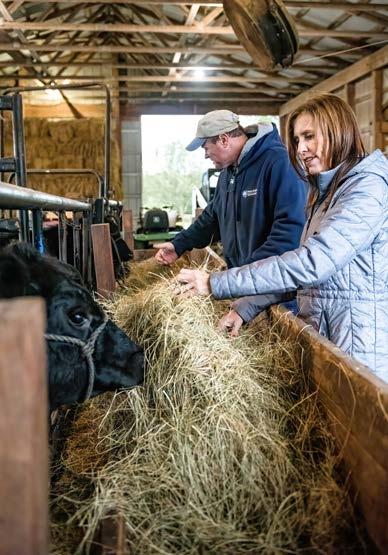
Getting information to farmers is the main driver to Del’s efforts. A Facebook page (PA Crop and Ag Updates) where he posts crop-related information is “just another venue for delivery,” according to Del. A blog, which he posts through Penn State, labeled Lebanon Crop Management, is an additional place where producers can go to learn and get their crop questions answered.
In fact, it’s helping people that is the rewarding part of his job, believes Del. “I think I get a little fixated on saving farmers money. I try to economize on everything to make the crop profitable without sacrificing yield. You want to keep the yield moving up the ladder, but have to do it in a way that is not costing more than the return,” he adds.
Because he is passionate about getting information out and helping farmers, he organizes educational meetings, travels to speak at croprelated sessions, and visits farmers’ fields, reaching somewhere between 8,000-15,000 farmers each year.
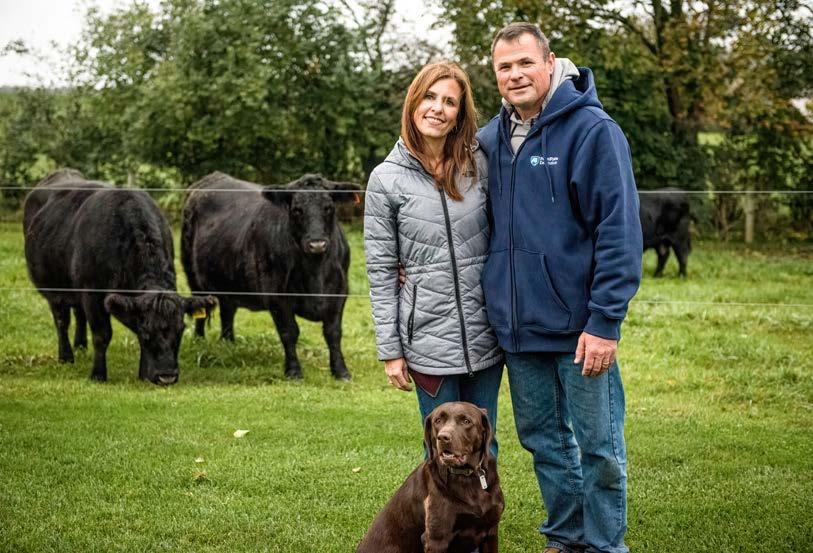
Farm Credit has been a key player in his educational outreaches, as year-round, the association sponsors a variety of his events. Del has also used Farm Credit facilities for training, conducting workshops in their buildings.
His own relationship with Farm Credit began sixteen years ago when he and his wife Lori, a fourth grade teacher, wanted to build a barn for their herd of seedstock Angus cattle.
Besides that business relationship, he has joined efforts with Farm Credit representatives such as loan officer Sarah Worobey, as they serve on committees like the Lebanon County Farm-City Committee and work together to promote agriculture, organizing farm city tours for elementary children.
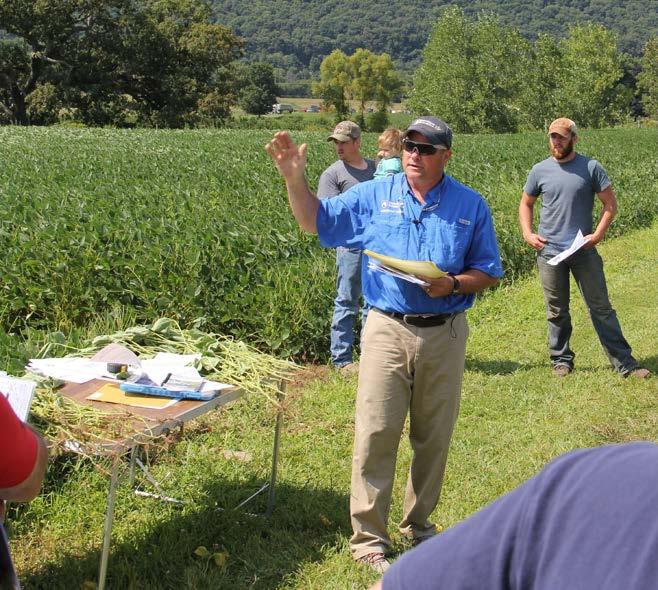
“I can tell Del is passionate about agriculture, as well as teaching farmers new agronomic skills, purely through his dedication to his work,” says Sarah. “He comes from a family farming background and continues to dedicate all his time to farmers through their PSU Extension needs, committee outreach and involvement, as well as through his children who are also big ‘agvocates’ for agriculture.”
As an Extension educator, Del’s outreach efforts start in December, when he begins traveling to give production workshops, discussing row width population, variety selection, and pest and harvest management with participants.
Following the corn, soybean, and small grain workshops in December, Del helps organize and speak at 50-60 pesticide education meetings, where he tries to infuse current research findings into his talk and show the results of variety trials.
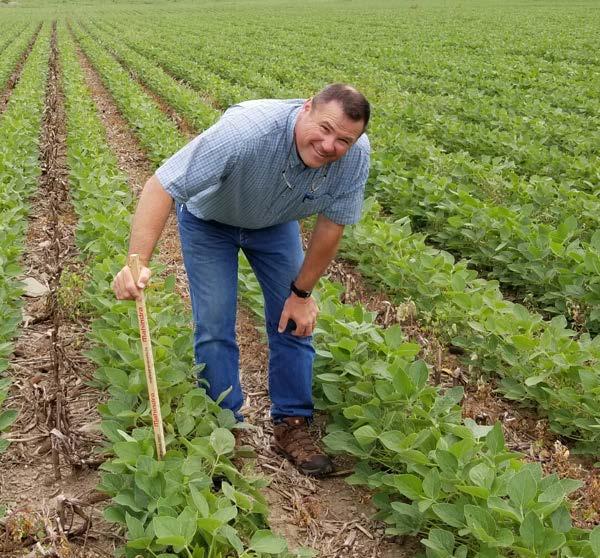
In the spring, he begins tackling planting problems, “starting out with alfalfa breaking dormancy, then top dressing wheat and wheat problems, then weevils get going and pesticide management kicks in. Then it’s corn and soybean planting problems, going to midseason pests, rolling into midsummer, depending on the weather — that dictates what my life is like,” says Del.
Summer is the time for one-on-one diagnostic instruction and also work at research plots at the Southeast Agricultural Research and Extension Center (SEARC), where he oversees research plots for soybeans and validation plots on nearby farms.
Fall brings harvest time and a fresh round of certifications for state and national contests, besides running the soybean contest for Pennsylvania, coordinating the farm crops competition at the Lebanon Fair, and judging farm crops at other local fairs.
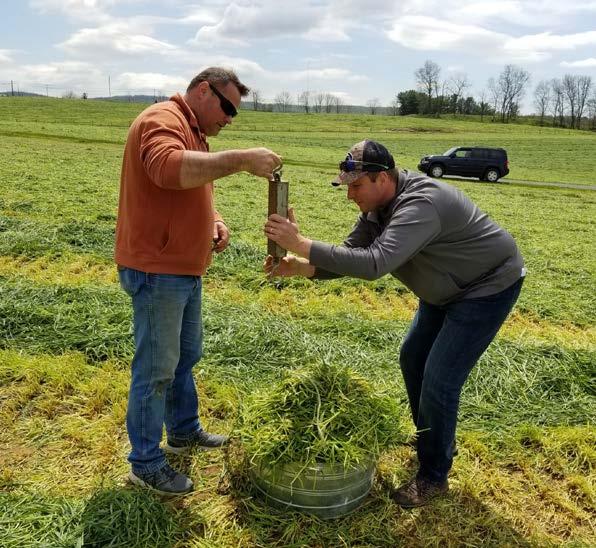
He’ll also spend time on farms, helping farmers decide why stalk rot or disease, for example, may have impacted yields. He enjoys passing on research findings to farmers. “That’s why I love my job. I can be unbiased with my recommendations,” he says.
Follow the PA Crop and Ag Updates page on Facebook: @38cmeg. Go to sites.psu.edu/38cmeg/ to read the Lebanon Crop Management blog.
